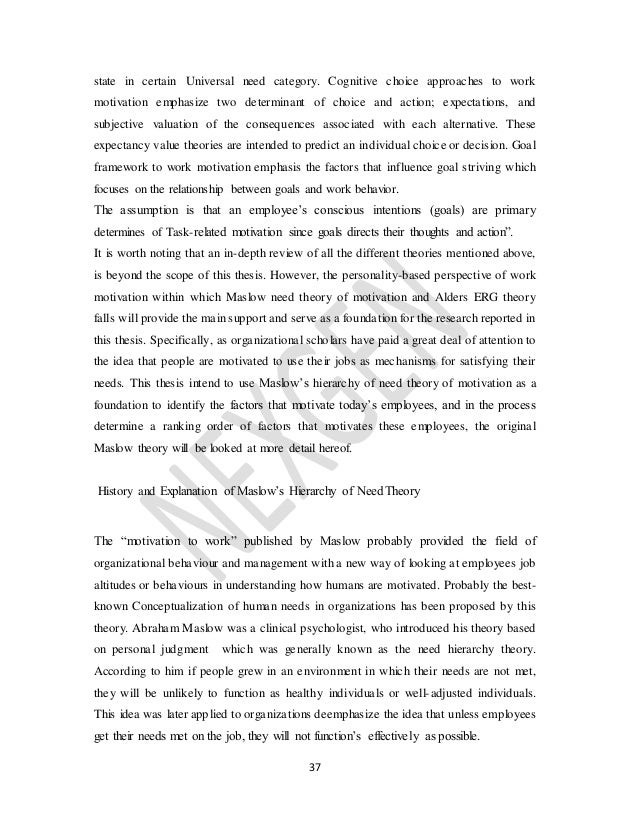Vroom 1964 Expectancy Theory Pdf Editor

This article has an unclear citation style. The references used may be made clearer with a different or consistent style of,,. (February 2012) () () Expectancy theory (or expectancy theory of motivation) proposes an individual will behave or act in a certain way because they are motivated to select a specific behavior over other behaviors due to what they expect the result of that selected will be. In essence, the motivation of the behavior selection is determined by the desirability of the outcome.
Vroom 1964 Expectancy Theory Pdf Editor. Management Control Systems Text Book of Zoology, Vol II (Chordata). Now, suppose subjects are provided with a 5 -point Likert scale with which to portray their dependent response ( y, an observable random variable that can. Donald Trump Suddenly Refuses to Talk About His. Work and Motivation. VROOM is the John G. Searle Professor of Organization and Management. (Editor), California School of.
However, at the core of the theory is the process of how an individual processes the different motivational elements. This is done before making the ultimate choice. The outcome is not the sole determining factor in making the decision of how to behave. Expectancy theory is about the mental processes regarding choice, or choosing. It explains the processes that an individual undergoes to make choices. In the study of, expectancy theory is a theory first proposed by of the. 'This theory emphasizes the needs for organizations to relate rewards directly to performance and to ensure that the rewards provided are those rewards deserved and wanted by the recipients.'
Rags Designer Keygen Mac there. Vroom (1964) defines as a process governing choices among alternative forms of voluntary activities, a process controlled by the individual. The individual makes choices based on estimates of how well the expected results of a given behavior are going to match up with or eventually lead to the desired results. Motivation is a product of the individual's expectancy that a certain effort will lead to the intended performance, the instrumentality of this performance to achieving a certain result, and the desirability of this result for the individual, known as valence. Contents • • • • • • • • • • • • • Author [ ] In 1964, Victor H.
Vroom developed the expectancy theory through his study of the motivations behind decision making. This theory is relevant to the study of. Key elements [ ] The expectancy theory of motivation explains the behavioral process of why individuals choose one behavioral option over the other. This theory explains that individuals can be motivated towards goals if they believe that there is a positive correlation between efforts and performance, the outcome of a favorable performance will result in a desirable reward, a reward from a performance will satisfy an important need, and/or the outcome satisfies their need enough to make the effort worthwhile. Vroom introduced three variables within the expectancy theory which are valence (V), expectancy (E) and instrumentality (I). The three elements are important behind choosing one element over another because they are clearly defined: effort-performance expectancy (E>P expectancy), performance-outcome expectancy (P>O expectancy). Expectancy theory has three components: expectancy, instrumentality, and valence.